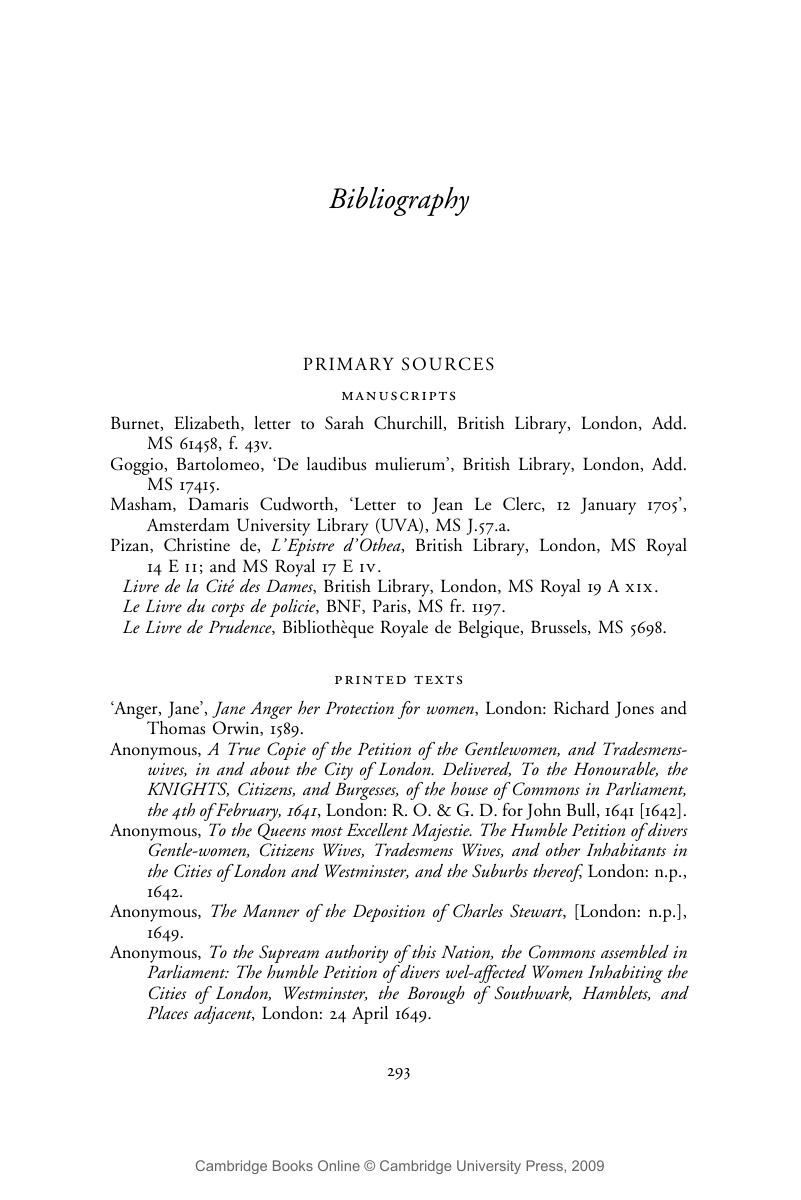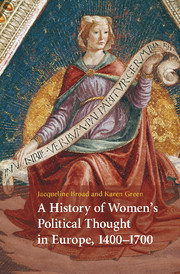Book contents
- Frontmatter
- Contents
- Preface
- Introduction
- 1 Christine de Pizan
- 2 Women of the Italian Renaissance
- 3 From Anne de Beaujeu to Marguerite de Navarre
- 4 Queen Elizabeth I of England
- 5 From the Reformation to Marie le Jars de Gournay
- 6 Women of the English civil war era
- 7 Quaker women
- 8 The Fronde and Madeleine de Scudéry
- 9 Margaret Cavendish, Duchess of Newcastle
- 10 Women of the Glorious Revolution
- 11 Women of late seventeenth-century France
- 12 Mary Astell
- Conclusion
- Bibliography
- Index
- References
Bibliography
Published online by Cambridge University Press: 02 July 2009
- Frontmatter
- Contents
- Preface
- Introduction
- 1 Christine de Pizan
- 2 Women of the Italian Renaissance
- 3 From Anne de Beaujeu to Marguerite de Navarre
- 4 Queen Elizabeth I of England
- 5 From the Reformation to Marie le Jars de Gournay
- 6 Women of the English civil war era
- 7 Quaker women
- 8 The Fronde and Madeleine de Scudéry
- 9 Margaret Cavendish, Duchess of Newcastle
- 10 Women of the Glorious Revolution
- 11 Women of late seventeenth-century France
- 12 Mary Astell
- Conclusion
- Bibliography
- Index
- References
Summary

- Type
- Chapter
- Information
- A History of Women's Political Thought in Europe, 1400–1700 , pp. 293 - 326Publisher: Cambridge University PressPrint publication year: 2009



